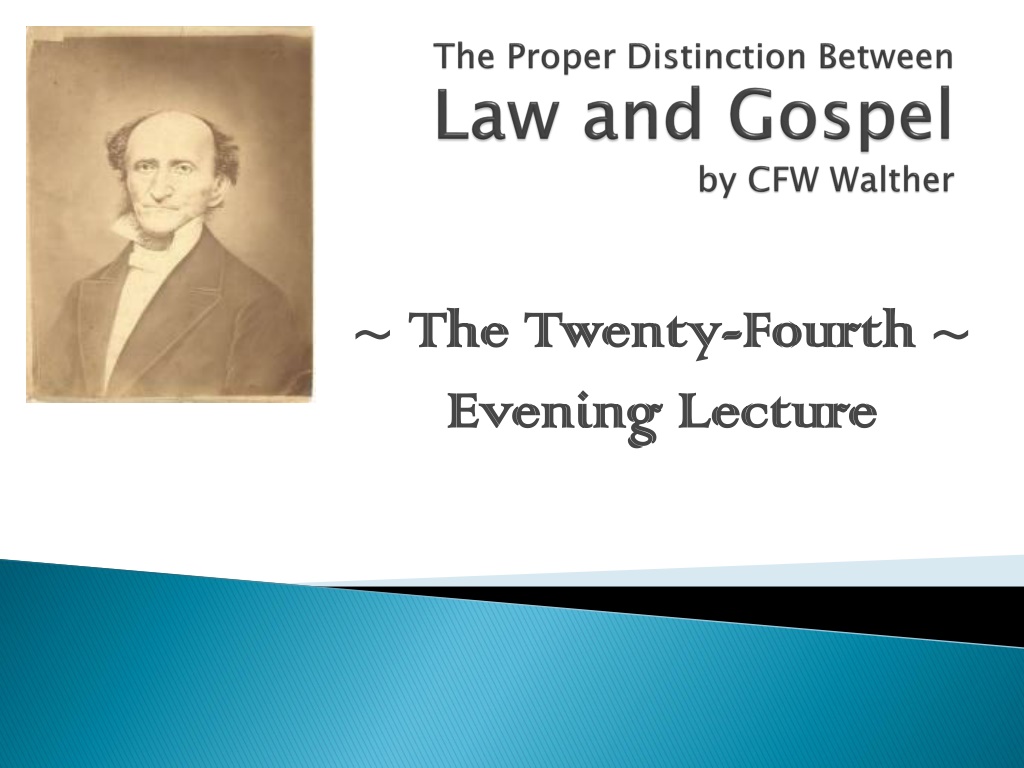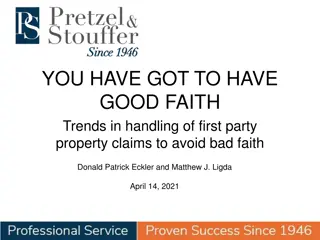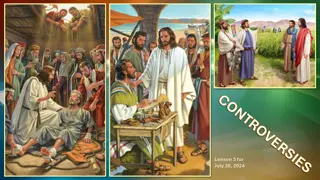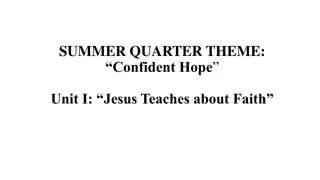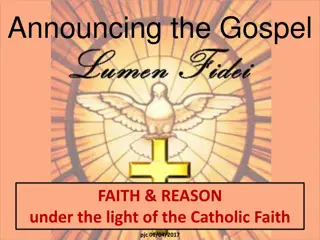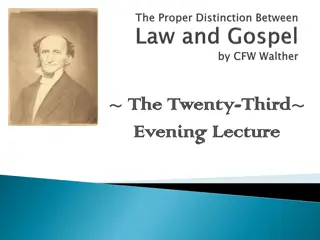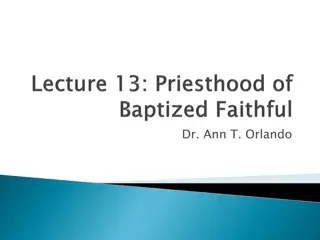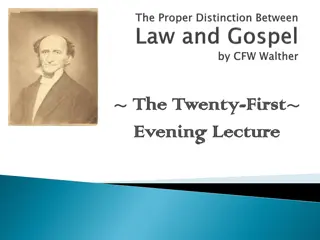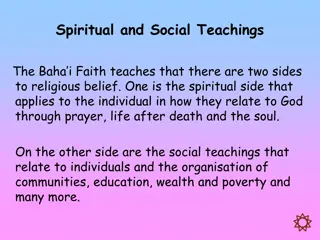Insights on Faith and Contrition from Walther's Teachings
Walther emphasizes the importance of contrition while highlighting that it is not the cause of something specific. He distinguishes between the desire to come to Jesus and the desire to experience contrition. The context also discusses historical aspects like Rationalism in the Protestant Church of Germany and the significance of faith in preaching. The teachings of Martin Luther regarding salvation by grace are also touched upon.
Uploaded on Sep 28, 2024 | 0 Views
Download Presentation

Please find below an Image/Link to download the presentation.
The content on the website is provided AS IS for your information and personal use only. It may not be sold, licensed, or shared on other websites without obtaining consent from the author. Download presentation by click this link. If you encounter any issues during the download, it is possible that the publisher has removed the file from their server.
E N D
Presentation Transcript
~ The Twenty ~ The Twenty- -Fourth ~ Evening Lecture Evening Lecture Fourth ~
Walther says that contrition is necessary, but it is not a cause of what? What s the difference, according to Walther, between the desire to come to Jesus, and the desire to have contrition? 2
About one hundred twenty years ago [1765] Rationalism had become dominant in the so- called Protestant Church of Germany. 3
Intelligent Agriculture Profitableness of Potato-raising Treeplanting a Necessity Importance of Genuine Sanitation 4
In the ninth place, the Word of God is not rightly divided when one makes an appeal to believe or at least help towards that end, instead of preaching faith into a person s heart by laying the Gospel promises before him. 6
the demand on the part of the pastor, be it ever so urgent, that his hearers believe the Gospel. When demanding faith, we do not lay down a demand of the Law, but issue the sweetest invitation, practically saying to our hearers: Come; for all things are now ready. Luke 14, 17. Analogy of inviting a starving man to a banquet. 7
that man can produce faith in himself. It is not important that he din the word faith into the ears of his audience, but it is necessary for him to frame his address so as to arouse in every poor sinner the desire to lay the burden of his sins at the feet of the Lord Jesus Christ. 8
Martin Luther. He rarely appeals to his hearers to believe, but he preaches concerning the work of Christ, salvation by grace, and the riches of God s mercy in Jesus Christ in such a manner that the hearers get the impression that all they have to do is to take what is being offered them and find a resting-place in the lap of divine grace. 9
that something is required of them which they must do. They will begin to worry whether they will be able to do it. 10
they have merely made their hearers sigh: Oh, that I had faith! Faith must be something very difficult; for I have not obtained it. 11
No. Scripture requires of man everything The mere issuing of such demands does not prove that man can comply with them. When a creditor demands payment, that does not prove that the debtor can pay. 13
The wrong part in Melanchthons statement is not the assertion that there must be a cause in man why he is reprobated and damned, but that there must be a cause in some men why they are predestinated unto salvation. 14
No answer at all. We are at this point confronted with an inscrutable mystery, and any one who is unwilling to acknowledge this mystery is abandoning the Christian religion. 15
The truth that we are all by nature dead in sins and that we become new creatures in regeneration. Man s faith comes under the same ruling as his contrition. I may sit down in a corner and indulge in melancholy thoughts in order to coax contrition out of myself; but I fail The same holds good with regard to faith. 16
This question Melanchthon answers: Of course you can! An awful answer, this! 17
you must tell him that you are not surprised at his statement; for no man can. And you must instruct him to do nothing but listen to the Word of God, and God will give him faith. 18
After regeneration, i.e., after the Holy Spirit has turned him from an unbeliever into a believer. 19
Free will in man is the ability to prepare oneself for grace. This is the notorious statement which is usually cited to prove that Melanchthon was a genuine synergist. The foregoing awful statements prove it indeed. 20
